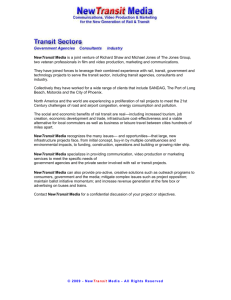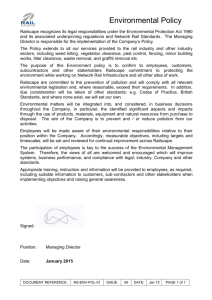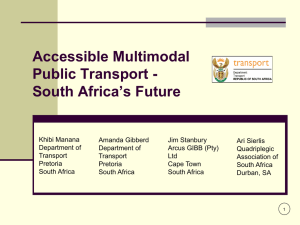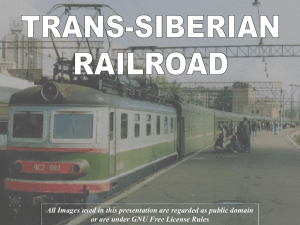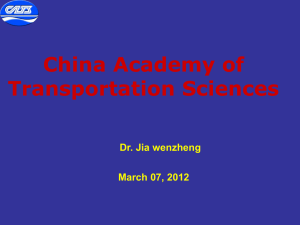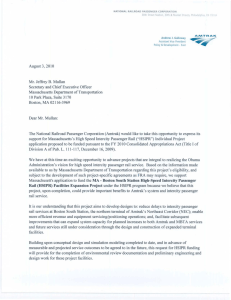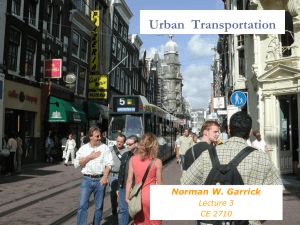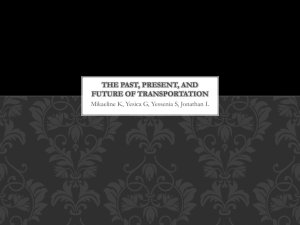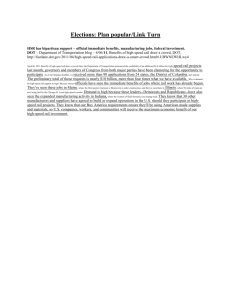SWOTA Presentation to SWEA 2015-05-14
advertisement
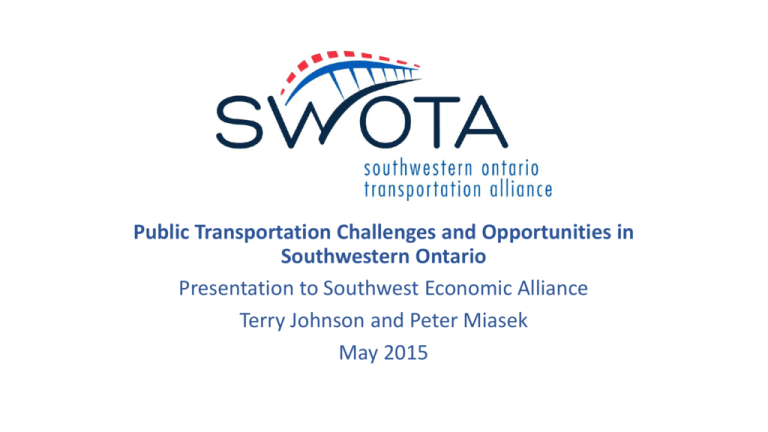
Public Transportation Challenges and Opportunities in Southwestern Ontario Presentation to Southwest Economic Alliance Terry Johnson and Peter Miasek May 2015 Why Does Public Transportation Matter? • Labour market flexibility • Youth retention • Investment attraction • Tourism and recreation • Highway congestion mitigation • Mobility options for all demographics • Environmental benefits SW Ontario’s Mobility Gap • Loss of most intercity bus routes since 2009 • Deep cuts to VIA Rail services in 2011 • Rail, intercity bus, and transit don’t interconnect • Buses were the last public transport option for many towns • Not everyone can drive, not everyone who can wants to How did we get here? • There is no federal framework for a national passenger rail service that is accountable to Parliament • Successive federal governments have failed to properly fund VIA Rail • Ontario has traditionally put its funding outside the GTHA into highways • The regulatory framework for buses has failed to protect services • We have developed an unsustainable car-dependent society that doesn’t serve all citizens Southwestern Ontario’s Passenger Rail and Bus Service Action Plan Network Southwest Lessons from the United States • Joint federal and state funding and planning • New equipment and upgraded infrastructure • Incrementally increase rail frequency, speed, and comfort • Feeder bus routes to serve off-line communities • Good transit for “first and last mile” portion of intercity trips • Mobility hubs to connect trains, buses, and transit • Stick to proven technologies and practices North Carolina’s Passenger Program Michigan’s Wolverine Corridor Network Southwest in 2020 How much will this cost? • $60 million annual operating grant (same as today for VIA) • $400 million over five years in capital investment, the cost of 1 km of new subway • Funding shared between federal and provincial governments … and how are we keeping the price down? • Ontario-built double-deck trains pulled by existing locomotives • Refurbish single-level GO buses for SW Ontario use • Leverage VIA Rail’s existing capabilities The case for investment • $1 million investment = 30-36 jobs • $1 million investment = $3-4 million in economic spinoff • 18 times safer than car travel • Reduces highway spending and protects agricultural land • Reduces energy consumption and pollution • Easily converted to electric operation How do NiagaraGO and Ontario HSR fit in? • NiagaraGO proposal is very similar to NSW proposal for Niagara area • Metrolinx has other priority projects • VIA Rail partnership may deliver results sooner • Toronto-London-Windsor High Speed Rail promised by 2025 • Environmental assessment process has started • Needs a strong feeder network to succeed in serving our region Moving Ahead: SWEA and SWOTA • A motion to reconfirm support • A shared message to Ottawa and Queen’s Park • Assistance with outreach • Business case development Moving Ahead: Municipalities • Resolutions of support for Network Southwest • Support community engagement on the mobility issue • Information and directions to existing transit services • Minor transit route adjustments to improve connections
